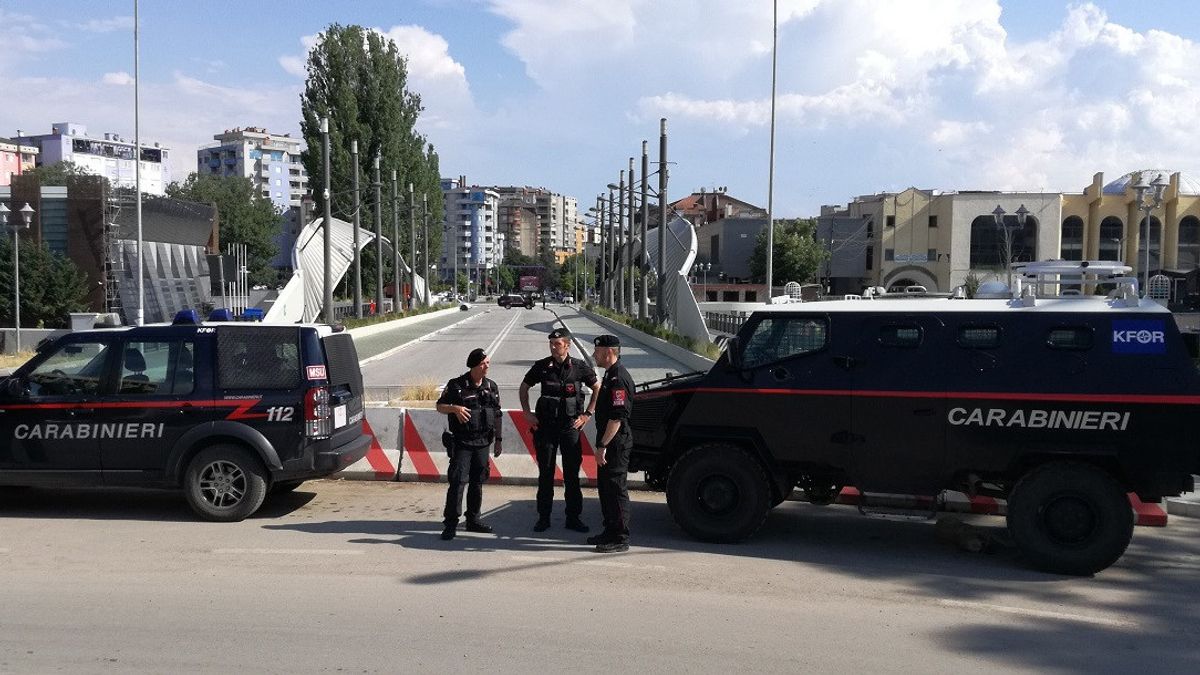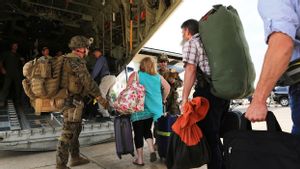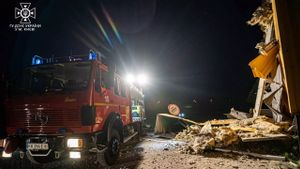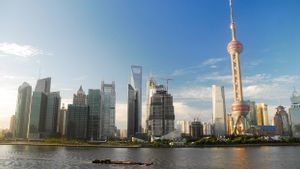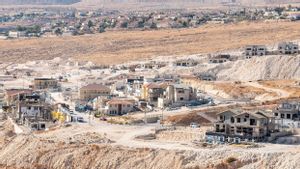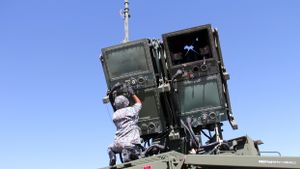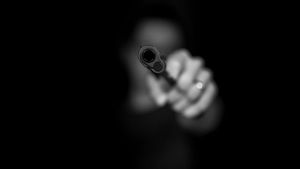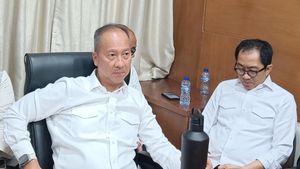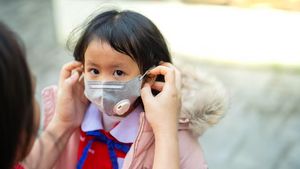JAKARTA - Around 25 NATO peacekeepers defending three town halls in northern Kosovo, were injured in clashes with Serbian protesters on Monday, while Serbia's President put the military on highest combat alert.
KFOR, the NATO-led peacekeeping mission to Kosovo, condemned the violence.
"While fighting the most active crowd, several soldiers from KFOR's Italian and Hungarian contingents were subjected to unprovoked attacks and sustained traumatic injuries, with broken bones and burns from the explosion of incendiary devices," KFOR said in a statement.
Hungarian Defense Minister Kristof Szalay-Bobrovniczky said seven Hungarian soldiers were seriously injured and would be taken to Hungary for treatment. He said 20 soldiers were injured. Italian soldiers were also injured in the clashes.
"What happened is completely unacceptable and irresponsible," Prime Minister Giorgia Meloni of Italy said in a statement.
"It is imperative to avoid further unilateral actions from the Kosovo authorities and all parties involved to step down immediately to defuse tensions," he stressed.
Meanwhile, Serbian President Aleksandar Vucic said that 52 Serbs were injured, three of them seriously.
Meanwhile, Kosovo President Vjosa Osmani accused Serbian partner Aleksandar Vucic of destabilizing Kosovo.
"Illegal Serbian establishment turned criminal gang has attacked Kosovo police, KFOR (peacekeepers) & journalists. Those who carried out Vucic's orders to destabilize northern Kosovo, must be brought to justice," Osmani tweeted.
President Vucic accused Kosovo Prime Minister Albin Kurti of creating tensions. He called on Serbs in Kosovo to avoid clashes with NATO troops.
Tensions developed after an ethnic Albanian mayor took office in the Serb-majority region of northern Kosovo, following an election that Serbia boycotted - a move that led the US and its allies to rebuke Pristina on Friday.

In Zvecan, one of the towns, Kosovo police - staffed by ethnic Albanians after Serbs left the force last year - sprayed pepper gas to chase away crowds of Serbs who broke through security barricades and tried to force their way into the city's government building.
Serb protesters in Zvecan threw tear gas and stun grenades at NATO soldiers. Serbs also clashed with police in Zvecan and NATO vehicles spray-painted with the letter "Z", a reference to Russian markings used in the war in Ukraine.
In Leposavic, near the border with Serbia, US peacekeepers in riot gear set up barbed wire around the town hall to protect it from hundreds of angry Serbs.
Then at the end of the day protesters threw eggs at the parked car of the new mayor Leposavic.
President Vucic, who is the commander-in-chief of the Serbian armed forces, raised the army's combat readiness to the highest level, Defense Minister Milos Vucevic told reporters.
"This implies that immediately before 14:00, the Chief of the General Staff of the Serbian Armed Forces issued additional instructions for the deployment of army units in specially designated positions," explained President Vucevic, without elaborating.
NATO peacekeepers also blockaded the town hall in Zubin Potok to protect it from angry local Serbs, witnesses said.
Igor Simic, co-chairman of Serbia List, the largest Kosovo Serb party which is backed by Belgrade, accused Kosovo Prime Minister Albin Kurti of stoking tensions in the north.
"We are interested in peace. The Albanians living here are interested in peace, and only he (Kurti) wants to cause chaos," Simic told reporters in Zvecan.
Serbs, who form the majority in northern Kosovo, never accepted Kosovo's 2008 declaration of independence from Serbia and still regard Belgrade as their capital, more than two decades after an ethnic Kosovo Albanian uprising against repressive Serbian rule.
While ethnic Albanians make up more than 90 percent of the population in Kosovo as a whole, Serbs in the north have long demanded implementation of a 2013 European Union-brokered deal for the creation of an association of autonomous municipalities in their area.
Serbs refused to take part in April's local elections and ethnic Albanian candidates won mayoral elections in four Serb-majority municipalities, including North Mitrovica, where no incidents were reported Monday, with a turnout of 3.5 percent.
Serbs are demanding that the government of Kosovo remove the ethnic Albanian mayor from the city hall and allow local authorities financed by Belgrade to continue their work.
On Friday, three of the four ethnic Albanian mayors were escorted into their offices by police, who pelted stones at them and responded with tear gas and water cannon to disperse the protesters.
また読む:
The United States and its allies, which strongly support Kosovo's independence, rebuked Pristina on Friday saying imposing a mayor in the Serbian-majority region without popular support would undermine efforts to normalize relations.
Kurti defended Pristina's position, tweeting after a weekend phone call with the European Union's foreign policy chief: "Stressing that the mayor-elect will provide services to all citizens."
Meanwhile Serbian Foreign Minister Ivica Dacic told RTS it was "impossible to have mayors who are not elected by Serbs in majority Serb cities".
The English, Chinese, Japanese, Arabic, and French versions are automatically generated by the AI. So there may still be inaccuracies in translating, please always see Indonesian as our main language. (system supported by DigitalSiber.id)
